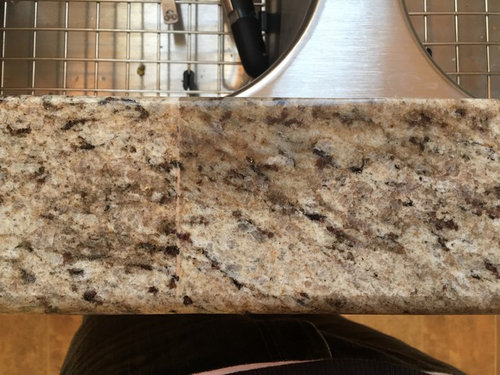You can always look up the absorption rating of your stone if you know its kind and origin stones with less than 25 absorption don t usually need to be sealed.
If you sealed the granite will make darker.
Even a completely sealed granite countertop can stain if a spill is left to sit for long enough.
Pour a bit of water on the counter.
If you need two or more slabs for a job you want to get them all from the same bundle preferrably or at least from the same lot or you risk the slabs simply not matching.
Test whether the granite needs sealing.
Note the time that you placed the water on the counter and time the water to see how long it takes to absorb the granite will darken.
Apple pie order gives some good advice but i would seal the samples first except the quartz or at least part of the sample so you can see the difference.
1 4 cup should be enough.
As mentioned earlier dark stone is often more dense and won t need sealing but lighter color granites are often more porous and will definitely need to be sealed.
If you re going to place food or drinks on a granite table it s a good idea to seal it.
Granite slabs come to the warehouse cut like a loaf of bread.
A lot is made up of a bunch of bundles.
Perform a simple water test to see if your granite countertops need to be sealed.
To test your surface leave a few drops of water or a wet paper towel on the granite for 10 to 15 minutes doing this in an inconspicuous area.
And of course more lightly colored granite is more likely to show stains than darker colors so if you have a white or other pale colored granite countertop it s important to be extra vigilant.
Lighter granite is more porous than darker and black is one the most dense stones out there.










